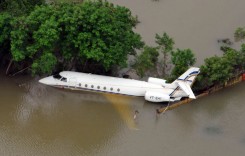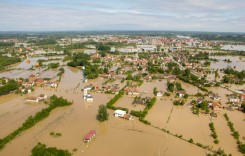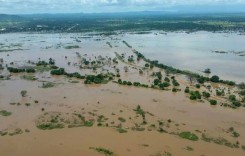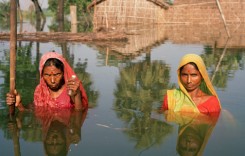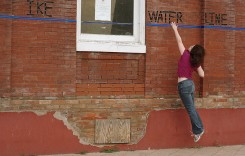Update 25th July 2013:
DPR Korea government has reported that the provinces of North and South Pyongan have been badly affected by flooding.
- Chongchon River broke banks early 21st July
- South Pyongyang province is now 80% flooded
- 45,948 people made homeless across the country
- 10,000 hectares of farmland affected
- 1,000 hectares of crops destroyed
Orginial Report:
Floods have struck again in North and South Korea. It’s the second time this month that both countries have seen severe flooding after torrential rain.
Heavy rainfall was seen in the central and northern regions of the Korean Peninsula straddling the border of the 2 countries. The rainfall lasted over several days, from around 19th July to 23rd July, and brought flooding and landslides to North and South Korea.
North Korea
Pyonggang in North Korea, not far from the border with South Korea, had over 11cm of rain in a 24 hour period on 22nd July. According to North Korea’s weather agency, Tongsin province had over 41cm of rain over three days until early Monday 22nd July. Five people have been reported killed in the floods in North Korea and as many as 23,000 people have been displaced.
Flooding and severe weather conditions in North Korea bring the added threat of crop failure and food scarcities, since the country’s agricultural technology and infrastructure is unable to cope with added stresses.
South Korea
Dongducheon which lies south of the border in South Korea had over 7cm of rain during a 24 hour period on 22nd July.
4 people have been killed in landslides that followed flooding in Geonggi province, South Korea. Some areas of Seoul and Gangwon province, as well as Geonggi province have seen severe flooding, especially in the low lying areas.
[mappress mapid=”47″]
Earlier July Floods
On 15th July I reported that 2 people had been killed in floods in North Korea after heavy rainfall of up to 20cm in the South Hamkyong, North Hwanghae and Kangwon provinces. Some northern areas of South Korea were also affected at that time, although no causalities were involved.
Sources: UN



